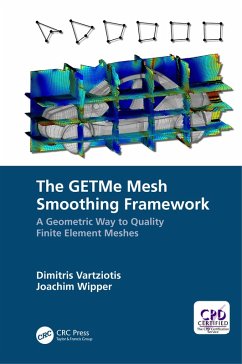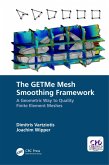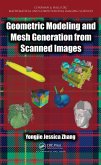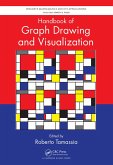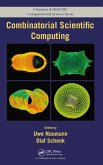This book describes the mathematical theory of regularizing element transformations as foundation for mesh smoothing. It gives a thorough introduction to GETMe based mesh smoothing and its algorithms providing a framework to focus on efficiently improving minimal element quality, overal mesh quality, and mesh validity.
Dieser Download kann aus rechtlichen Gründen nur mit Rechnungsadresse in A, B, BG, CY, CZ, D, DK, EW, E, FIN, F, GR, HR, H, IRL, I, LT, L, LR, M, NL, PL, P, R, S, SLO, SK ausgeliefert werden.
Hinweis: Dieser Artikel kann nur an eine deutsche Lieferadresse ausgeliefert werden.

